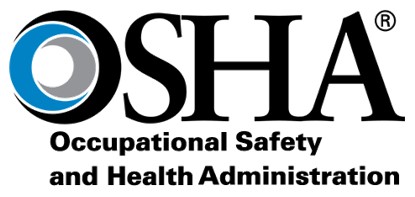Originally Published by: Safety & Health Magazine — October 11, 2023
SBCA appreciates your input; please email us if you have any comments or corrections to this article.
OSHA has pushed to Nov. 13 the deadline for comment on its proposal to allow workers to designate someone who doesn’t work for their employer to represent them during OSHA “walkaround” inspections.

The agency invites feedback on all aspects of the proposed rule, initially published Aug. 30, but specifically asks:
- Should OSHA defer to the employees’ selection of a representative to aid the inspection when the representative is a third party (in other words, remove its requirement for third-party representatives to be “reasonably necessary” to the inspection)?
- Should OSHA retain the language as proposed, but add a presumption that a third-party representative authorized by employees is reasonably necessary to the conduct of an effective and thorough physical inspection of the workplace?
- Should OSHA expand the criteria for an employees’ representative who is a third party to participate in the inspection to include circumstances when the Compliance Safety and Health Officer determines that such participation would aid employees in effectively exercising their rights under the OSH Act? If so, should OSHA defer to employees’ selection of a representative who would aid them in effectively exercising their rights?
Under OSHA 1903.8, a walkaround representative “shall be an employee(s) of the employer.” However, the regulation also allows an OSHA inspector, or CSHO, to make a judgment call on whether a third party can participate in the walkaround.
“Specifically,” an OSHA press release states, “the proposed rule clarifies that employees may authorize an employee, or they may authorize a non-employee third party if the compliance officer determines the third party is reasonably necessary to conduct an effective and thorough inspection.
“The proposed changes also clarify that third-party representatives are not limited to industrial hygienists or safety engineers, two examples included in the existing regulation. Third-party representatives may be reasonably necessary because they have skills, knowledge or experience that may help inform the compliance officer’s inspection. This information may include experience with particular hazards, workplace conditions or language skills that can improve communications between OSHA representatives and workers.”
OSHA Extends Comment Period for Walkaround Representation
Originally Published by: Safety & Health Magazine — October 11, 2023
SBCA appreciates your input; please email us if you have any comments or corrections to this article.
OSHA has pushed to Nov. 13 the deadline for comment on its proposal to allow workers to designate someone who doesn’t work for their employer to represent them during OSHA “walkaround” inspections.
The agency invites feedback on all aspects of the proposed rule, initially published Aug. 30, but specifically asks:
Under OSHA 1903.8, a walkaround representative “shall be an employee(s) of the employer.” However, the regulation also allows an OSHA inspector, or CSHO, to make a judgment call on whether a third party can participate in the walkaround.
“Specifically,” an OSHA press release states, “the proposed rule clarifies that employees may authorize an employee, or they may authorize a non-employee third party if the compliance officer determines the third party is reasonably necessary to conduct an effective and thorough inspection.
“The proposed changes also clarify that third-party representatives are not limited to industrial hygienists or safety engineers, two examples included in the existing regulation. Third-party representatives may be reasonably necessary because they have skills, knowledge or experience that may help inform the compliance officer’s inspection. This information may include experience with particular hazards, workplace conditions or language skills that can improve communications between OSHA representatives and workers.”
Categories
Most Recent Posts